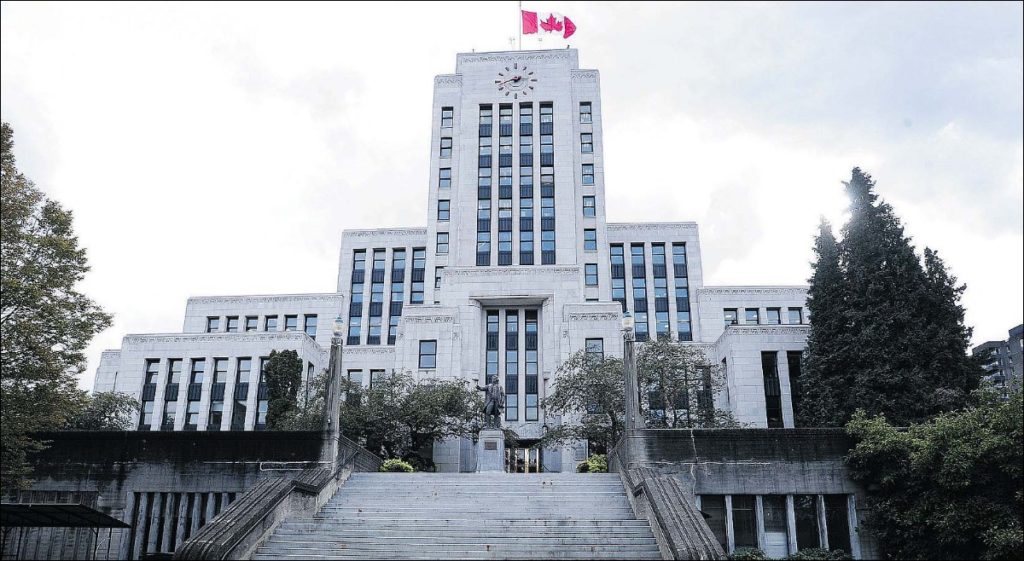The City of Vancouver’s notoriously sluggish permitting process, which has drawn heavy criticism from councilors, builders and homeowners, and now the head of the Canada Mortgage and Housing Corporation, may be in for an overhaul.
City staff have been meeting with industry stakeholders for the past four months in a bid to improve the system, said Kaye Krishna, the city’s general manager of development, buildings, and licensing.
“I do think that we can cut our times, and I do think we can turn this around,” Krishna said, adding that improving the permitting process was one of her top priorities.
After holding four meetings, the city is now preparing recommendations on process and regulatory changes that should be ready for council consideration by next spring.
Among the things Krishna and other staff are considering are faster processes, a risk-based approach to decision making and an audit to find out where to better focus resources. They’re also trying to drive willing developers online so they can avoid long waits at the city’s new development services centre.
While one Vancouver man said he was glad to hear change may be coming, it will do little to erase the frustration he feels after waiting 17 months for permits for $40,000 in “minor interior renovation” on his family home.
The homeowner, who agreed to an interview on the condition of anonymity, said he had figured his job would be approved by the city after a field review from an inspector — a simple permit process that now takes up to three weeks, according to the city. Instead, he received a stop work order (after having cut away some drywall to look at studs, he said), and after months of wrangling will need to do a porch infill, pass zoning and development review, and bring parts of his century-old house up to modern code.
“It has been the most difficult time of our lives as a family, financially (and) emotionally,” said the man, who was reluctant to be identified in fear that his comments could further delay his project.
Permit approval time for complex projects that require zoning and development review or that fail field reviews vary greatly by scope, according to the city. Some can take up to 15 weeks. Others can evidently take more than four times that.
The homeowner estimates he’ll have spent more than $30,000 in consultant, draftsmen, survey and application fees, assuming the work is approved soon. Meanwhile, his $40,000 job has swelled to about $75,000 and will now demand a bank loan.
Krishna acknowledged permit approvals for some small homes remains an issue, and offered some reasons for that: “Development is complicated and we don’t want to streamline it to the point where we’re compromising quality or risking health and safety, so we do want to be thorough. Having said that, I do think there are areas for improvement.”
Krishna said the developers advisory group had told her generally positive things about staff interest and helpfulness, but were concerned that institutional knowledge had declined with employee and leadership turnover.
Compounding that problem has been an increase in development permit requests spurred on by the booming real estate market. Many come from new developers who are unfamiliar with the city’s processes and face a steep learning curve.
But developers in general have found it hard to keep up with new policies and bylaws, Krishna said. “I think what we can do … is think about the timing and pace of those rollouts and how we apply them to developments (and) how we communicate them.”
Architect Darryl Condon, who participated in the advisory group, said that there seemed to be consensus in the industry that the system is not working right now. The regulatory framework is too complicated, the processes are rule bound, and waits are too lengthy, he said.
But he said the city seemed sincere in wanting to change things and was open to criticism.
“The conversations have been very frank and honest,” he said. “I truly believe the city administration wants to find real solutions.”
Krishna said she expected all findings of the advisory group to appear in a report to council.
Evan Siddall, the president of the CMHC, had sharp words for the city in a speech at the Greater Vancouver Board of Trade Wednesday. He cited the city’s permitting process as one factor contributing to the ongoing affordability crisis.
“The weak and lagging supply response in Vancouver — rezoning restrictions, density limits, development fees, and the time it takes for approval of new supply — and not just for affordable housing — needs urgent attention.
“If there’s a crisis, we should all act like it,” Siddall said.
“This is basic economics. The more we hold back supply, the faster prices will rise in response to increased demand. And Vancouver’s supply response is among the weakest in Canada.” Vancouver Sun
